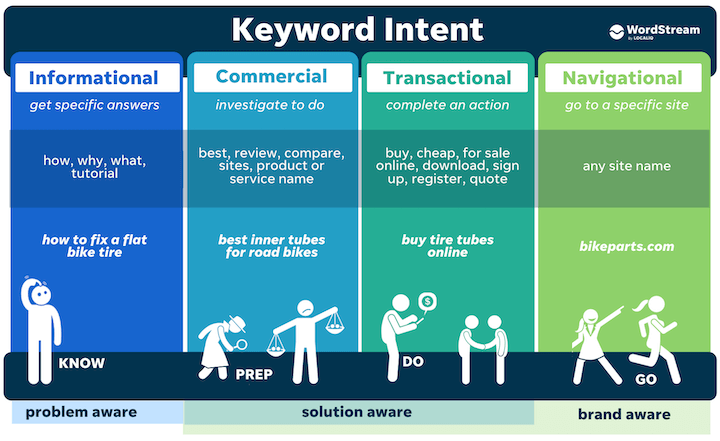Unlock the secrets of selecting and implementing the most effective marketing keywords to boost your online presence and success.

Image courtesy of via DALL-E 3
Table of Contents
Welcome to the world of marketing keywords! Do you know those words you type into a search engine to find what you’re looking for? Well, those are marketing keywords! In this blog post, we’ll explore why choosing the right keywords is essential and how using them can make a big difference for any online content.
What Are Marketing Keywords?
Marketing keywords are special words or phrases that people type into search engines when they are looking for something specific. These keywords help search engines like Google understand what a web page is about so they can show it to people searching for that information. Think of them as magic words that help you find what you’re looking for online!
Why Are They Important?
Choosing the right marketing keywords is like giving a map to search engines to help them guide people to your content. When you use the right keywords, your content is more likely to appear at the top of search results, making it easier for others to find and read what you have to say. It’s like shining a spotlight on your work in a sea of information!
Understanding Keywords
Different Types of Keywords
In the world of online marketing, keywords play a crucial role in helping people find what they’re looking for on the internet. There are different types of keywords that web users use when searching for information. Some keywords are short and general, like “toys,” while others are longer and more specific, like “best toys for 5-year-olds in 2021.”
How Keywords Work
Keywords work like magic spells that help search engines like Google understand what your content is all about. When you use the right keywords in your online posts, it’s like hanging a huge sign saying, “Hey, this is what my content is about!” This way, when someone searches for those keywords, your content pops up like a shiny treasure waiting to be discovered.
Choosing the Right Keywords
When it comes to marketing your content online, selecting the appropriate keywords is crucial. These keywords act as the bridge that connects your content to your target audience. By understanding your audience and the words they use to search for information, you can significantly boost the visibility of your content.
Know Your Audience
Before diving into keyword selection, take some time to think about who your audience is. Consider what they might be searching for when looking for content like yours. By putting yourself in their shoes, you can better understand the type of keywords they are likely to use.
Using Tools
There are helpful tools available that can assist you in finding the right keywords for your content. These tools provide insights into popular search terms, competition levels, and potential traffic. By utilizing these tools, you can optimize your keyword selection process and increase the chances of reaching your target audience.
Using Keywords Effectively
When it comes to using keywords effectively, knowing where to place them is key. You should include your chosen keywords in the titles of your articles, blog posts, or any online content. Search engines like Google pay close attention to these titles to understand what your content is about. Additionally, adding keywords in headers and throughout your content can help search engines recognize the relevancy of your material. By strategically placing keywords in these areas, you increase the likelihood of your content being discovered by your target audience.

Image courtesy of via Google Images
Avoiding Keyword Stuffing
It’s important to mention that using keywords effectively doesn’t mean cramming them everywhere. Keyword stuffing, which is the practice of overloading your content with keywords in an attempt to manipulate search engines, can actually harm your online visibility. Search engines have become smarter and can detect when content is overstuffed with keywords, which can lead to penalties. To avoid keyword stuffing, focus on creating high-quality, valuable content that naturally incorporates your keywords in a way that is helpful to your readers.
Tracking Your Keywords
Once you have chosen the right keywords for your content, it’s essential to track how well they are performing. This helps you understand what is working and what might need adjustment in your keyword strategy.
Using Analytics Tools
Analytics tools are like special trackers that show you how your chosen keywords are doing. These tools can tell you how many people are finding your content through those keywords, and if they are bringing in the right audience.
By looking at these analytics, you can see which keywords are driving more traffic to your content and which ones may need some tweaking. It’s like having a map to guide you on your marketing journey.
Improving Keyword Strategy
Based on the data from analytics tools, you can learn how to adjust your keyword strategy. If certain keywords are not performing well, you can try replacing them with new ones that might work better. It’s like fine-tuning a musical instrument to make sure it sounds just right.
Continuously monitoring and improving your keyword strategy can help your content reach more people who are searching for what you have to offer. It’s like a game where you keep leveling up to reach new heights of success!
Common Mistakes and How to Avoid Them
One common mistake people make when using marketing keywords is choosing the wrong ones. If you select keywords that are not relevant to your content or too competitive, your online visibility might suffer. To avoid this, take time to research and understand what your target audience is searching for. Use keyword tools to find the best keywords that align with your content and goals.

Image courtesy of via Google Images
Overusing Keywords
Another mistake to steer clear of is overusing keywords, also known as keyword stuffing. This occurs when you excessively repeat keywords throughout your content in an attempt to manipulate search engine rankings. However, search engines now penalize this practice, as it leads to poor user experience. To maintain a balance, strategically place keywords in titles, headers, and main body text naturally. Focus on creating valuable and informative content rather than cramming it with keywords.
Real-Life Examples
Let’s imagine you’re looking for a new video game to play. You type “best adventure games for kids” into a search engine, hoping to find some exciting options to try out. A game developer who understood that kids like you might be searching for such games used the keywords “best adventure games for kids” in the title and description of their game. As a result, their game showed up at the top of the search results, and you clicked on it to play. This is an example of how using the right keywords can help people find what they’re looking for quickly and easily.
Learning from Mistakes
Now, let’s consider a situation where someone made a mistake with their keywords. Imagine a small toy shop owner who wanted to attract more customers to their online store. They thought using as many keywords as possible would help, so they stuffed their website with phrases like “best toys, cheap toys, fun toys” everywhere. However, this made the website look spammy and confusing, and search engines actually penalized it, pushing it down in the search results. To fix this, the shop owner learned to use a few specific, relevant keywords like “unique handmade toys” that accurately described their products without overdoing it. This adjustment helped them attract more visitors to their website and increase sales.
Summary
In this article, we have explored the world of marketing keywords and how crucial they are for online content. Marketing keywords are specific words or phrases that help people find your content on the internet. By choosing the right keywords and using them effectively, you can significantly boost your online visibility.

Image courtesy of via Google Images
Understanding your target audience is key to selecting the right keywords. By knowing who your audience is and what they are searching for, you can tailor your content to meet their needs. Using simple keyword research tools can also aid in finding the best keywords for your content.
Once you have chosen your keywords, it is important to use them strategically throughout your content. Placing keywords in titles, headers, and naturally within your text can help search engines recognize your content and rank it higher in search results. However, it is essential to avoid keyword stuffing, which can negatively impact your content’s visibility.
Tracking the performance of your keywords is crucial to understanding how well they are working for your content. By using analytics tools, you can monitor the success of your keywords and make necessary adjustments to improve your strategy.
Lastly, we discussed common mistakes to avoid when using keywords, such as choosing the wrong keywords or overusing them. By learning from these mistakes and implementing best practices, you can effectively harness the power of marketing keywords to enhance your online presence.
Want to turn these SEO insights into real results? Seorocket is an all-in-one AI SEO solution that uses the power of AI to analyze your competition and craft high-ranking content.
Seorocket offers a suite of powerful tools, including a Keyword Researcher to find the most profitable keywords, an AI Writer to generate unique and Google-friendly content, and an Automatic Publisher to schedule and publish your content directly to your website. Plus, you’ll get real-time performance tracking so you can see exactly what’s working and make adjustments as needed.
Stop just reading about SEO – take action with Seorocket and skyrocket your search rankings today. Sign up for a free trial and see the difference Seorocket can make for your website!
Frequently Asked Questions (FAQs)
What If I Can’t Find Good Keywords?
If you’re having trouble finding good keywords, don’t worry! There are a few tips you can follow to help you out. First, think about what words someone might use when searching for the topic you’re writing about. Put yourself in their shoes and consider what phrases they might type into a search engine. You can also use online tools that suggest keywords based on your content. These tools can give you ideas for keywords you might not have thought of on your own. Lastly, look at what keywords your competitors are using. This can give you valuable insights into what works in your industry.
How Many Keywords Should I Use?
When it comes to using keywords in your content, less is often more. It’s essential to strike a balance between using enough keywords to help search engines understand what your content is about and not overloading your text with them. As a general rule of thumb, aim to include your main keyword in the title, headers, and throughout the content without forcing it. Remember, the goal is to create valuable and engaging content for your readers, so focus on writing naturally and organically incorporating keywords where they fit best.







